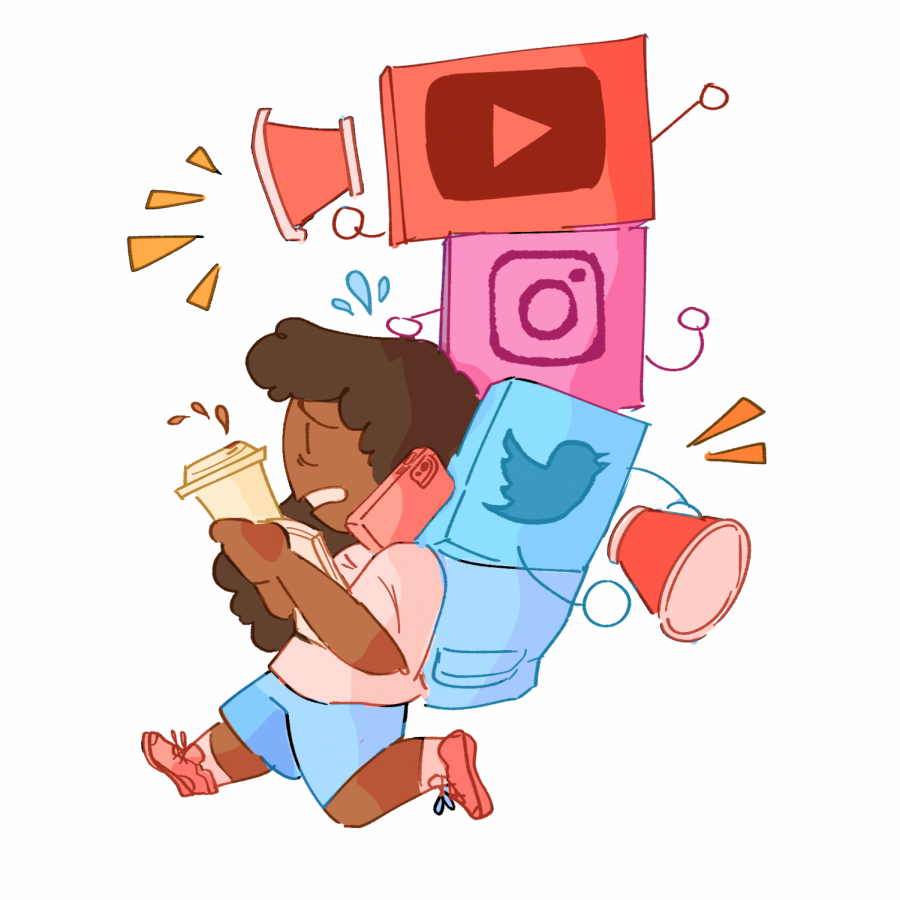UT students discuss social media’s effects on “hustle culture”
November 29, 2021
After a long day of classes, Annalisa Aldrete attempts to wind down by mindlessly scrolling through her Instagram feed. Instead, her stress elevates with each post documenting her peers’ internships, job opportunities and busy social lives.
“There’s always somebody that’s better than you, and they like to show you that they’re better than you,” said psychology sophomore Aldrete.
With finals season approaching, students describe how social media intensifies campus hustle culture — an environment glorifying around-the-clock productivity, even at the expense of personal health and relationships.
Aldrete said social media feels like a competition because her peers constantly chronicle their achievements online. She said routinely comparing herself to others negatively impacts her mental health.
“I’ve had instances where I’m a part of an organization where there’s a lot of pre-medical students, and they’re already getting internships in the medical field,” Aldrete said. “I often find myself thinking, ‘Why can’t I do that? Why can’t I get that?’”
The comparison doesn’t stop at academics, Aldrete said, but also includes social activities. On the weekends, she said she feels pressure to maintain a full social calendar to keep up with UT’s “work hard, play hard” environment.
“There’s always something happening Thursday through Sunday,” Aldrete said. “If you’re not there, you’re not a part of the culture.”
Carmen Capitani, a psychology freshman, said social media made her feel the need to compare herself to others more than ever before. She said she ends up stuck in a negative feedback loop, feeling like her classmates succeed in areas she doesn’t.
“Social media exacerbates everything that we feel is wrong with ourselves,” Capitani said. “Because if you notice a shortcoming within yourself, it’s only going to be exaggerated with what you’re seeing.”
If she didn’t use social media, Capitani said she wouldn’t engross herself in time-consuming self-comparison nearly as often.
“You lose the time for yourself when you’re absorbing that much of other people’s lives,” Capitani said.
Corporate communications sophomore Estrella Lozano said no matter how much she does, logging onto social media and seeing her classmates’ successes makes her feel like she should do more.
“You just look at them and you’re like, ‘I have to be doing the exact same thing, if not more, because that’s the only way I’m gonna be looked at as someone who’s hard-working,’” Lozano said. “Even though that’s not actually the case.”
With classes held virtually at the height of the pandemic, Lozano said she experienced UT’s hustle culture most heavily last year. She said her days consisted solely of Zoom meetings, work and assignments.
“I didn’t feel like myself anymore,” Lozano said. “I was just a student and a worker.”
With in-person classes this year, Lozano said she now feels she can experience the true UT environment beyond the confines of the internet. She said not relying on social media to foster connections made all of the difference.
“Now that I am in person, I’m less dependent on social media to feel that sense of community and hard work from everybody else,” Lozano said.



